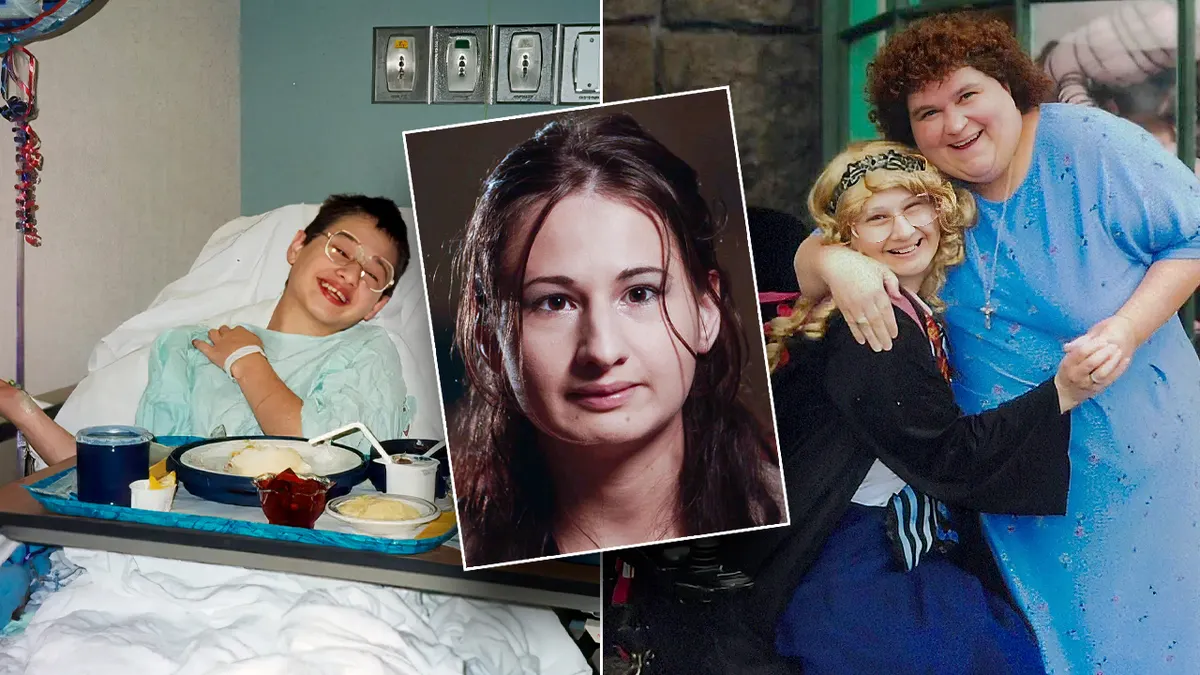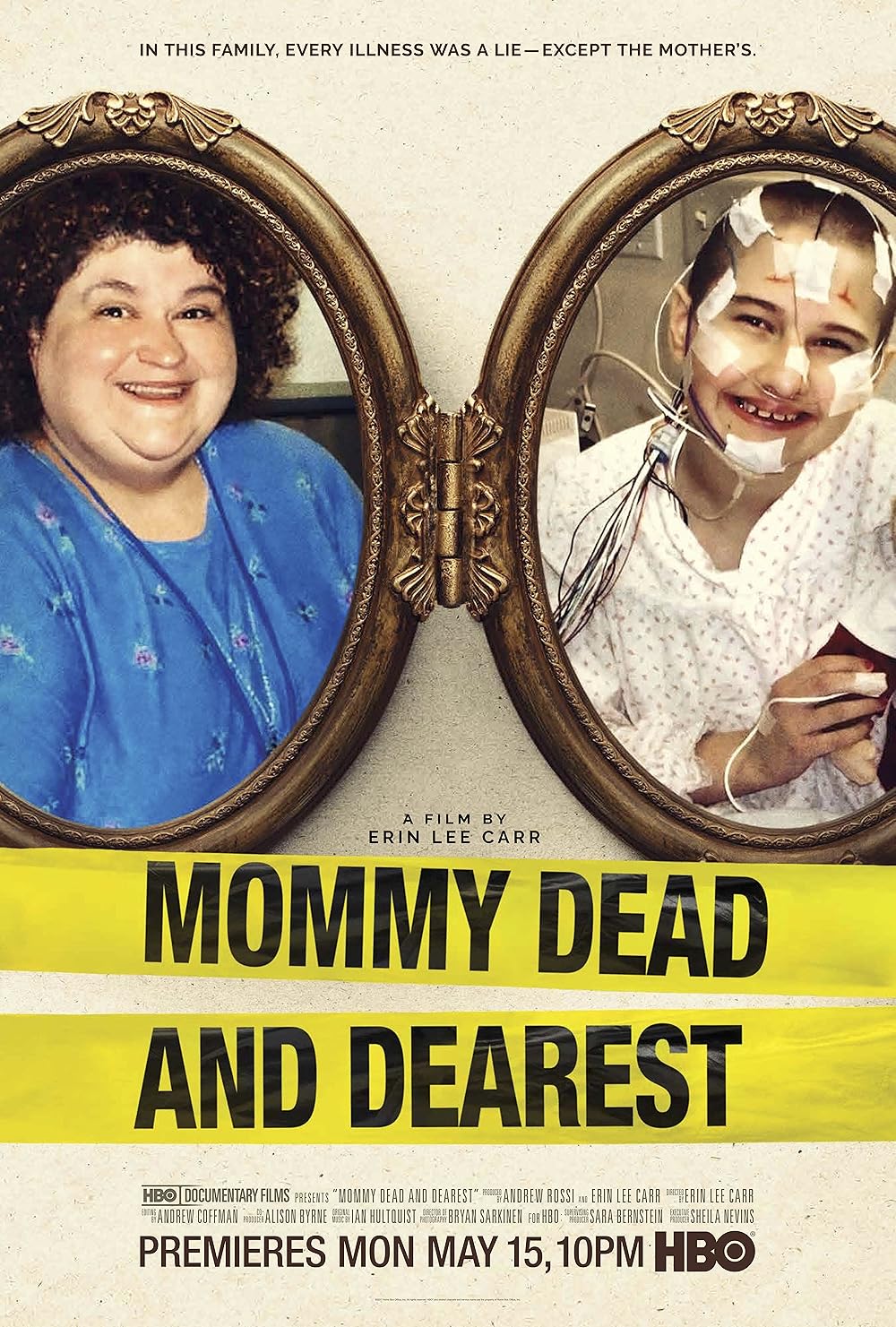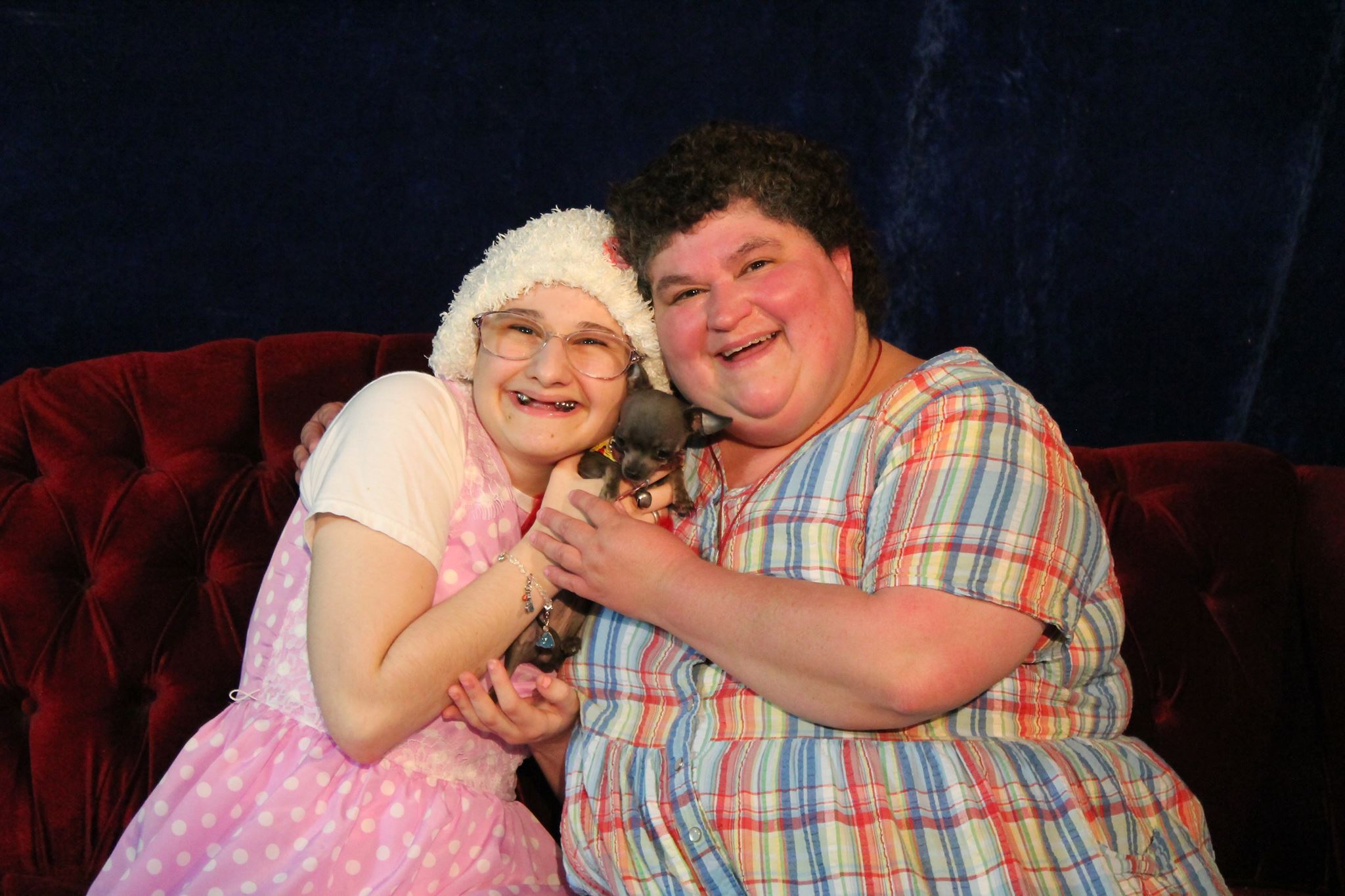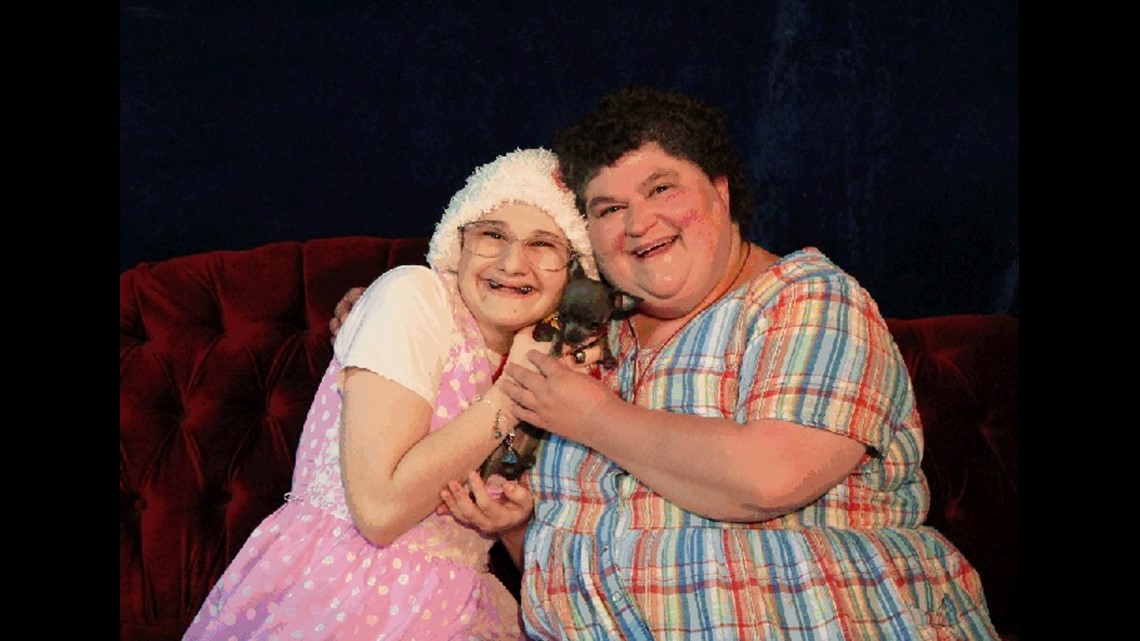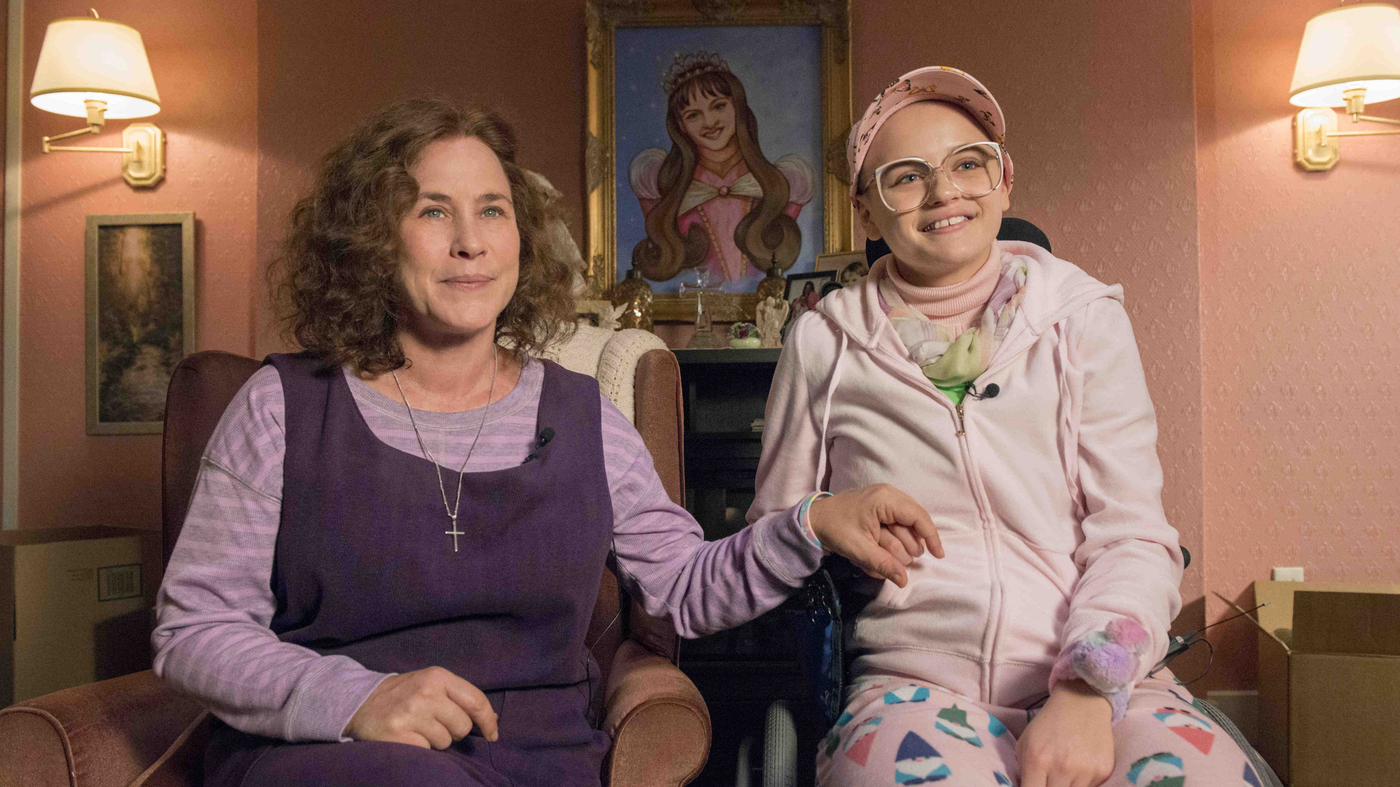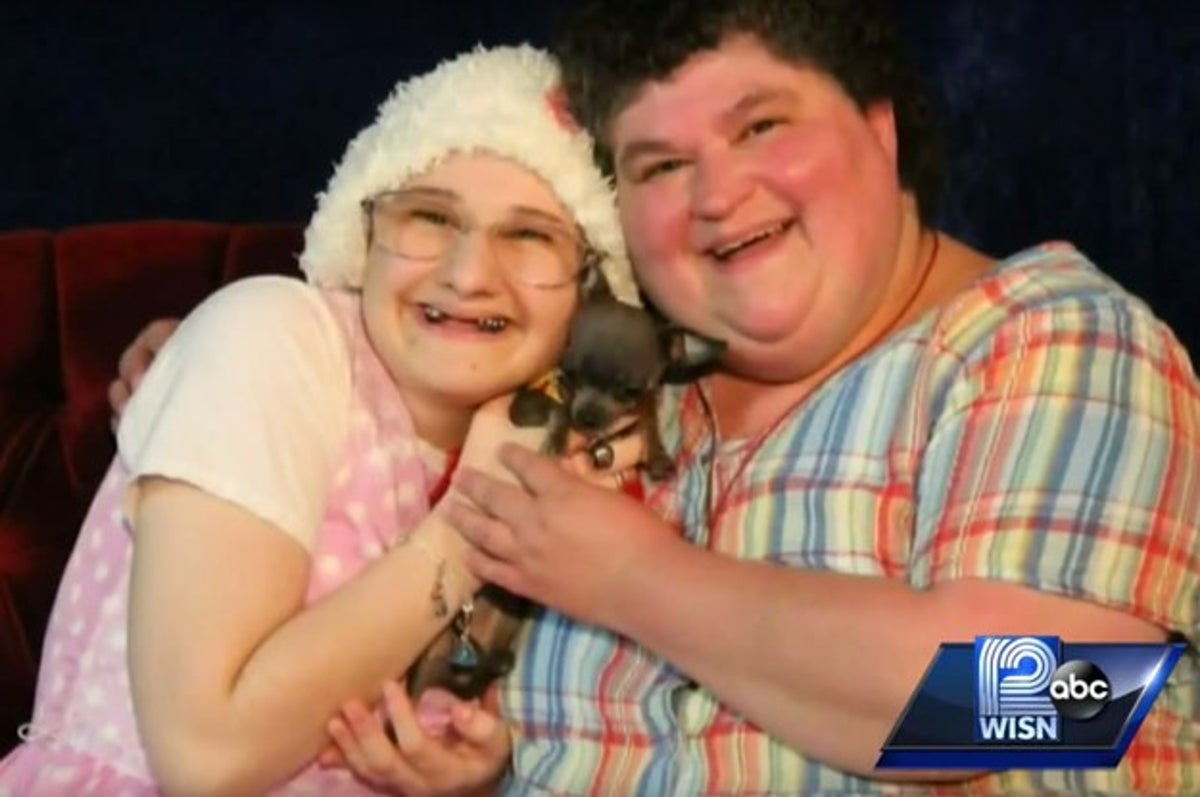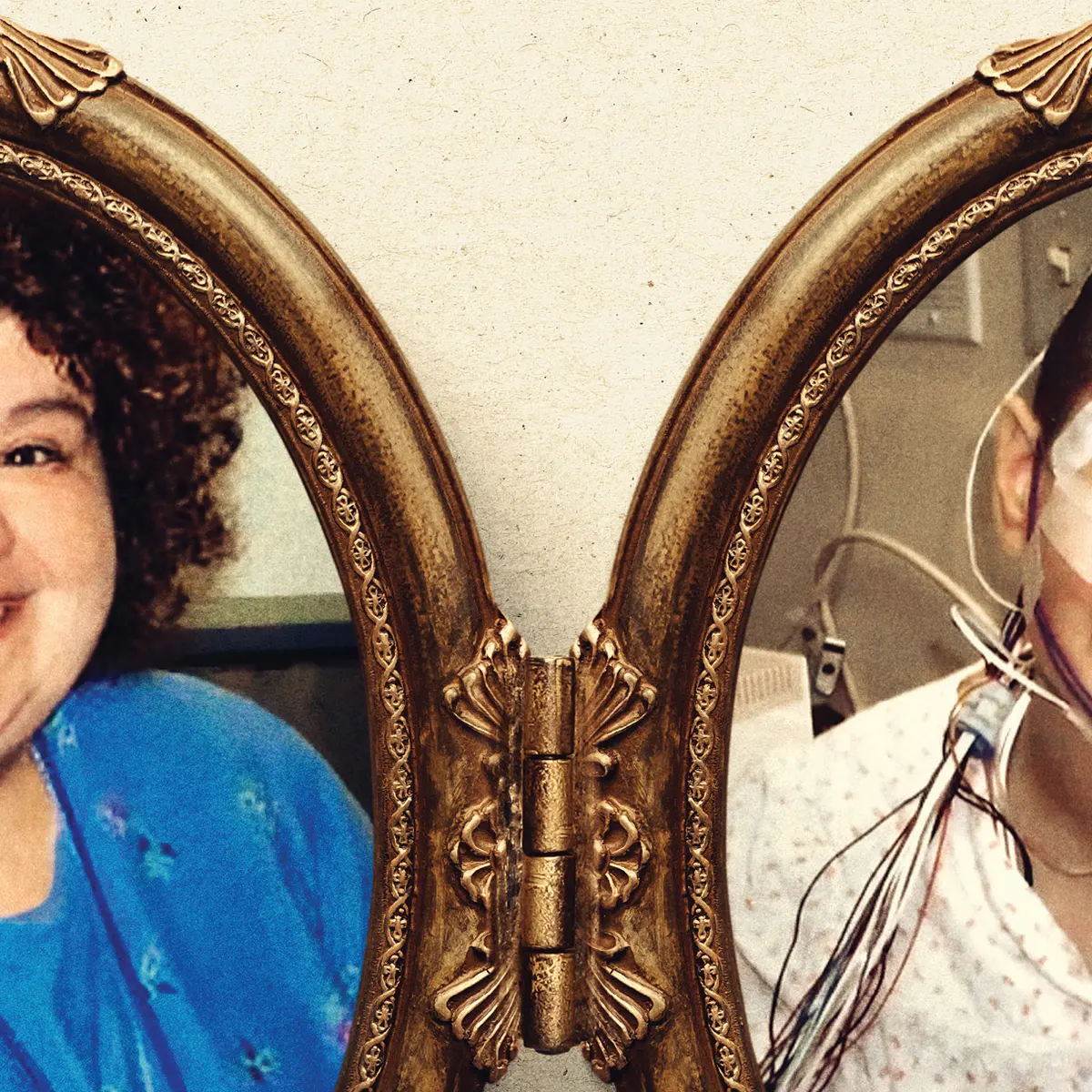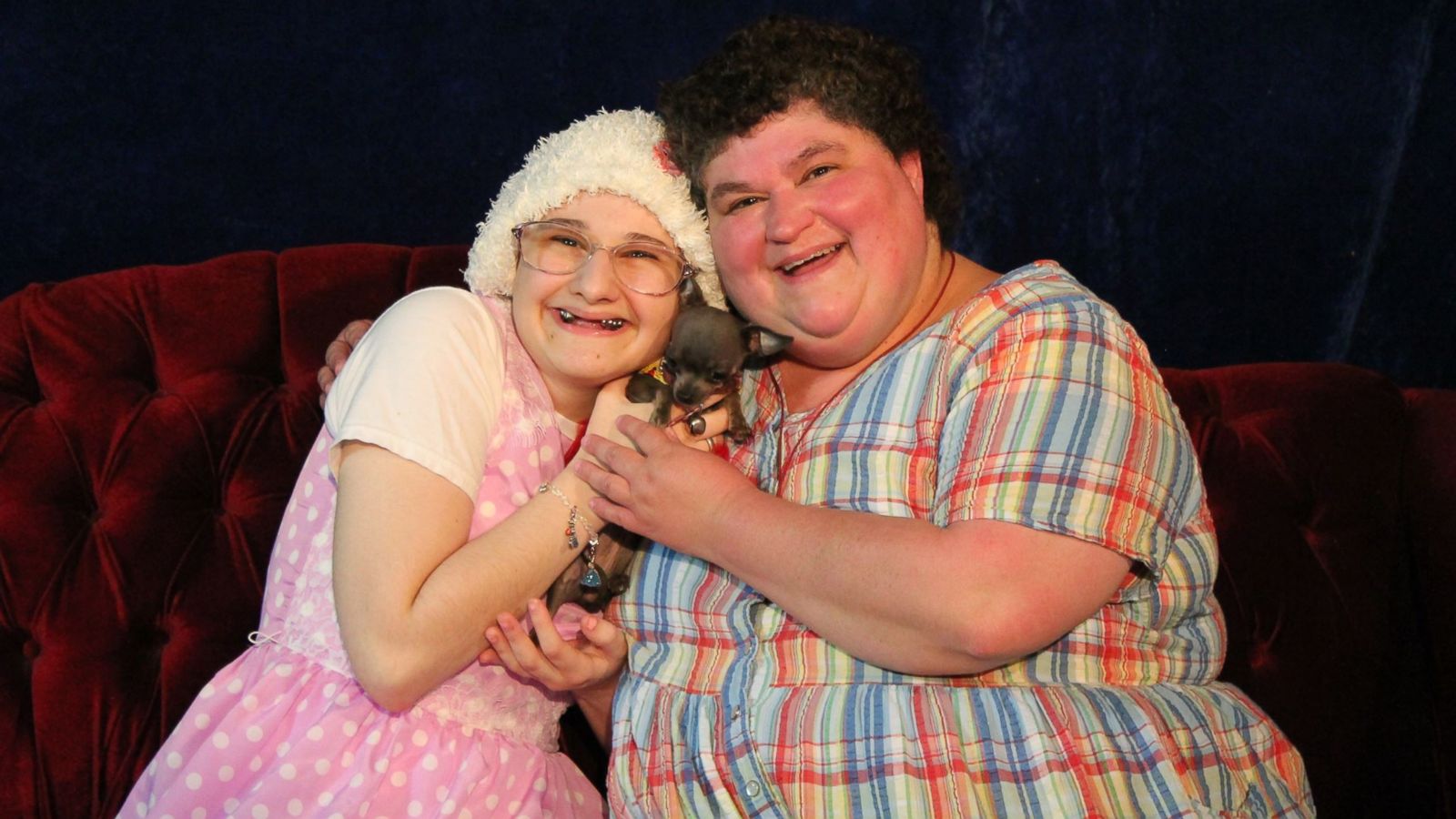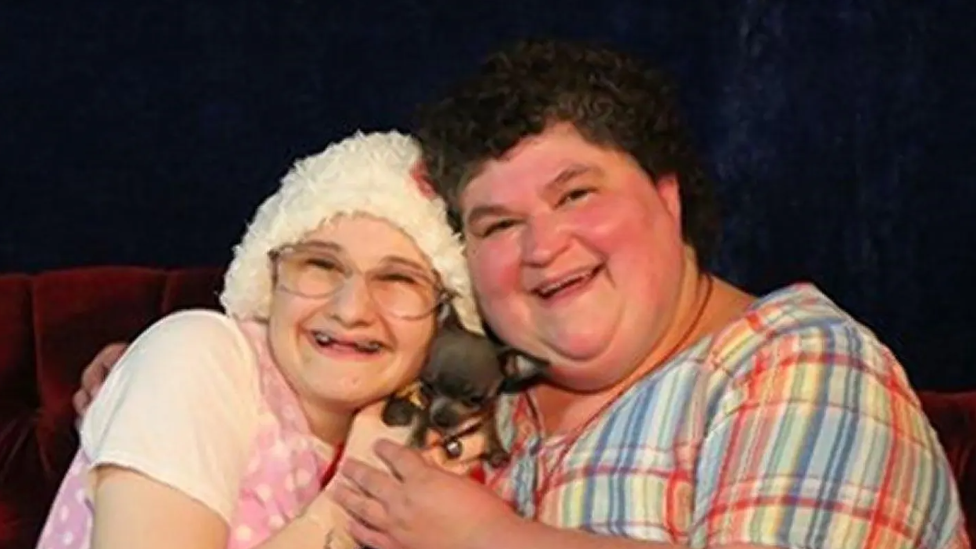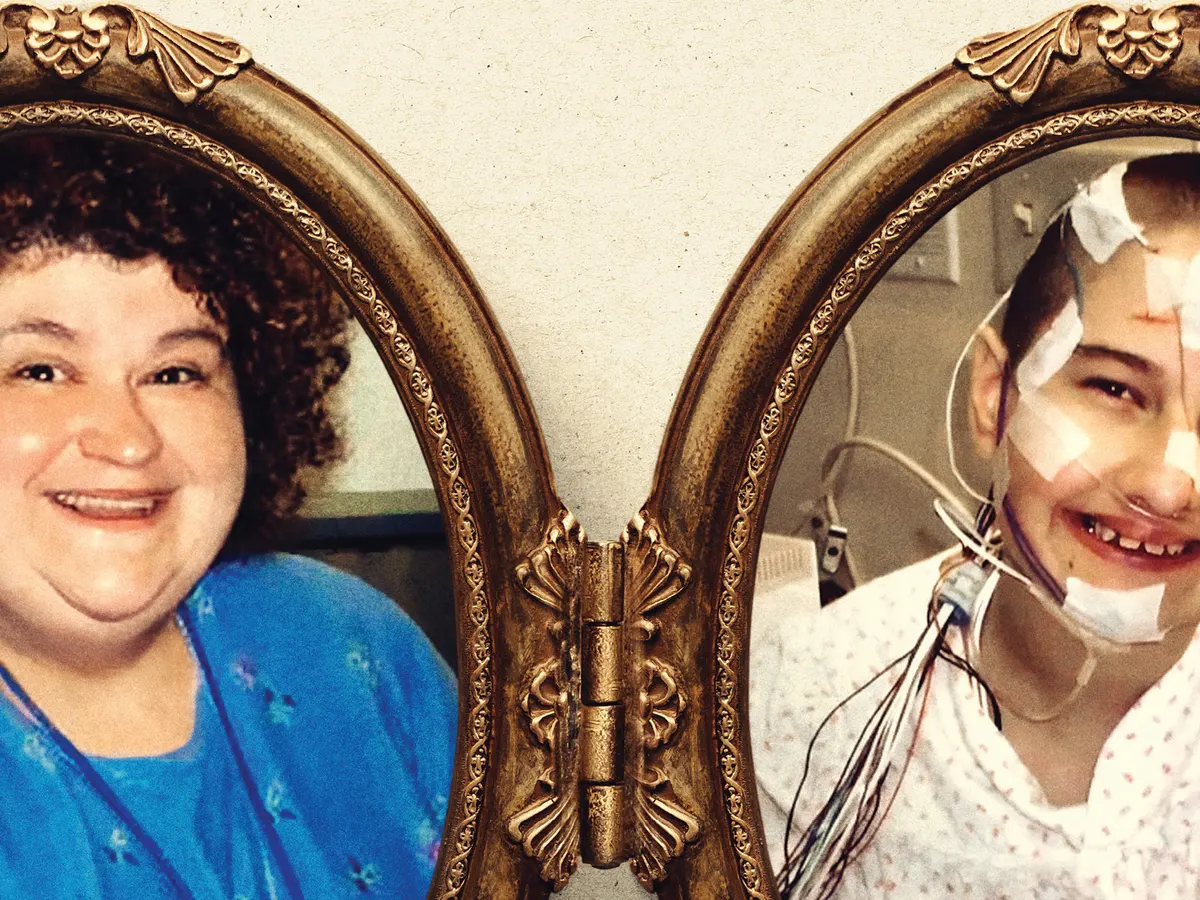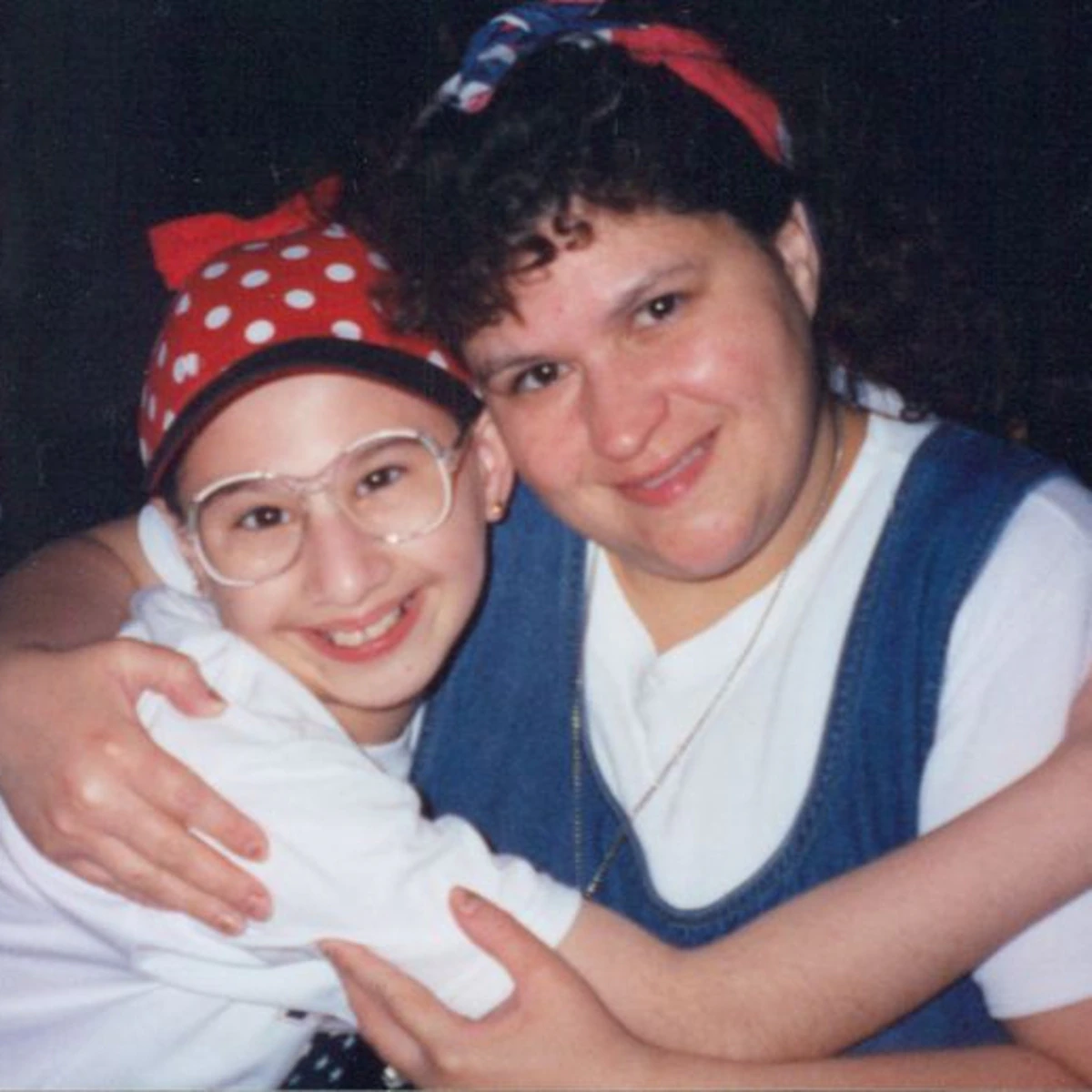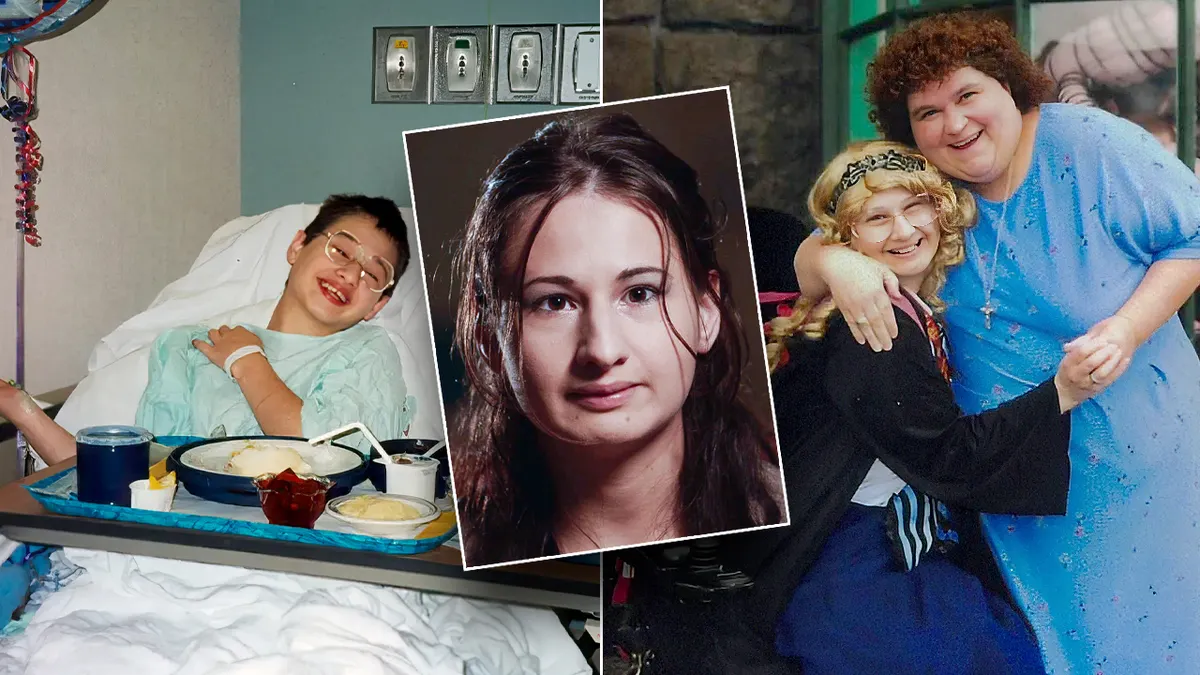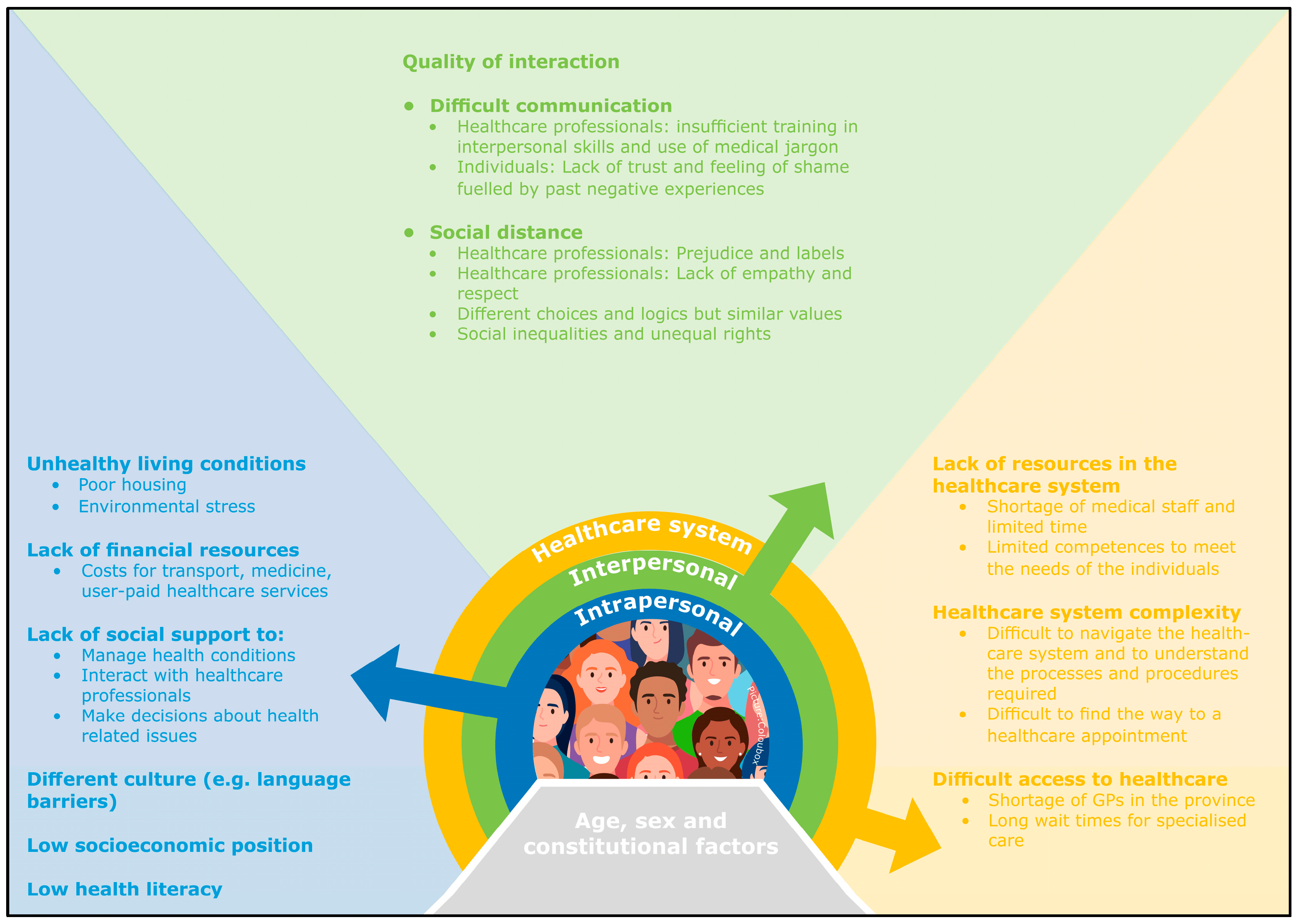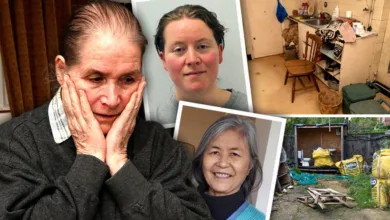Dee Dee Blanchard: A Tale of Manipulation, Abuse & Psychological Insight
Dee Dee Blanchard: a complex case of abuse
The story of Dee Dee Blanchard and her daughter, Gypsy Rose, is one of the most unsettling narratives of familial abuse that has ever been brought to light. At the intersection of love, manipulation, and psychological disorder, Dee Dee’s actions have captivated and horrified audiences worldwide. Throughout this article, we explore the dark dynamics and tragic events that led to the inevitable climax of this real-life drama. From a tumultuous upbringing that sowed the seeds of a need for control to the chilling details of Munchausen syndrome by proxy, Dee Dee’s life paints a picture of a deeply complex and troubled individual whose actions touched many lives. As we unravel the layers of this confusing tale, we delve into the psychological implications, media adaptations, and societal impact, providing a comprehensive understanding of Dee Dee Blanchard’s troubling narrative.
Background of Dee Dee Blanchard
Dee Dee Blanchard, born Clauddine Pitre on September 1, 1967, in Chackbay, Louisiana, emerged from a background marked by instability and familial discord. Life in Chackbay, a small town, was not without its challenges, influencing her subsequent actions and behaviors. Her tumultuous past, deeply intertwined with her family’s financial and emotional struggles, set the stage for patterns of dependency and emotional manipulation that would define her later life. Dee Dee’s marriage to Rod Blanchard was short-lived, and their daughter, Gypsy Rose, became the focus of her need for control and validation. Despite their separation, conversations around Gypsy’s welfare continued, but as tensions escalated, Rod distanced himself from Dee Dee’s grasp. This narrative introduces the complex, controlling relationship Dee Dee developed with Gypsy, where deep-seated psychological conditions manifested through a façade of Munchausen syndrome by proxy.
Early life and influences
Dee Dee Blanchard’s early life was a mosaic of unpredictability and hardship, weaving a complex tapestry that influenced her later notorious behavior. Born into a tumultuous household in Chackbay, Louisiana, she experienced financial and emotional instability, coloring her worldview and setting the foundation for her psychological need for control over others, particularly her daughter, Gypsy Rose.
Raised in a dysfunctional family, Dee Dee encountered several adversities, including emotional neglect and scarce economic resources, which left deep psychological imprints. Her mother’s mental health challenges and her father’s battles with alcoholism created a volatile home environment, cultivating in Dee Dee a deep-seated need for attention and validation that she would later manifest in troubling ways.
Key Influences in Dee Dee’s Early Life:
- Family Dynamics:
- Emotional neglect
- Financial struggles
- Parental mental health issues
- Social Experience:
- Difficulty in forming healthy relationships
- Troubles with academic engagement and achievement
These early experiences and the subsequent search for identity and validation through manipulation and control would lead Dee Dee down a path fraught with psychological complexity. Much like a plant growing in rocky soil, Dee Dee developed few healthy coping mechanisms. Instead, she leaned into a web of deceit and fabrication, ultimately resulting in the manipulation of Gypsy’s health and autonomy.
What stands out in Dee Dee’s formative years is not merely the presence of chaos but the absence of resolution a narrative that resonates through many of her life choices. The psychological fabric woven through her younger years was not sturdy enough to support a stable and nurturing relationship, instead fostering an environment ripe for the development of obsessive caregiving rooted in falsehoods and manipulation.
This foundation paved the way for Dee Dee’s oppressive relationship with Gypsy, where perceived illnesses and fictitious ailments became the focal point of a profoundly controlling dynamic. Such early factors provide crucial insights into the intricate behavior patterns that grew starkly apparent in Dee Dee’s parental role, marking her path to notoriety.
Marital history and relationship with gypsy rose
Dee Dee’s marital history is nothing short of complex and riddled with emotional turmoil. Her marriage to Rod Blanchard, significantly younger than her, reflects the unstable dynamics she was accustomed to. Rod was only 17 when they married, a fact that foreshadows the likelihood of strain in their relationship. Their union was short-lived, dissolving shortly after the birth of their daughter, Gypsy Rose. Despite ending their marriage, Dee Dee and Rod maintained intermittent contact, primarily concerning Gypsy’s welfare. However, as Dee Dee’s controlling behavior tightened its grip on Gypsy’s life, Rod found himself increasingly marginalized, withdrawing to protect his mental peace.
The narrative surrounding Dee Dee and Rod’s relationship provides a window into Dee Dee’s deep-seated need for loyalty and attention, qualities she later sought and enforced upon Gypsy. The relationship with Gypsy was central to Dee Dee’s existence. Gypsy was more than a daughter; she was the means through which Dee Dee manifested her need for control and validation, fabricating ailments and assuming the role of the “devoted caregiver.”
The Dynamics of Dee Dee and Gypsy’s Relationship:
- Control and Manipulation:
- Gypsy’s perceived medical conditions
- Restriction of Gypsy’s freedom
- Psychological and Physical Abuse:
- False ailments like leukemia and muscular dystrophy
- Unnecessary medical treatments
Dee Dee’s control over Gypsy was not just physical but psychological. Gypsy was led to believe she was seriously ill, becoming a prisoner within her own life a life lived mostly through the confines of wheelchairs and respirators that she did not need. Dee Dee’s fabrication of Gypsy’s health conditions much like a weaver spinning a tapestry of deception was both intricate and devastating. Each contrived ailment was a thread in the broader pattern of confinement that Dee Dee crafted for her daughter.
This control dynamic between Dee Dee and Gypsy exemplified a relationship devoid of typical maternal warmth and support. It was instead replaced by layers of overreliance and psychological manipulation. The extent of Dee Dee’s control fostered a deeply oppressive environment, ultimately compelling Gypsy to seek freedom through drastic measures, underscoring the tragic trajectory of their relationship.
The allegations of munchausen syndrome by proxy
Within the dark folds of Dee Dee Blanchard’s control over Gypsy Rose, the alleged presence of Munchausen syndrome by proxy casts a glaring spotlight. This psychological disorder, characterized by caregivers fabricating or inducing illness in others, became a focal point in understanding Dee Dee’s actions. Her manipulation of Gypsy’s health paved the way for a disturbing narrative that questioned the extent of parental harm cloaked in caregiving.
These allegations underscore the tragic complexities of Dee Dee’s need for validation and sadness at the absence of boundaries in her parenting. It reveals a house of cards, propped up by the deception of medical expertise and societal sympathy. As we delve deeper into understanding this syndrome now formally recognized as factitious disorder imposed on another (FDIA) we confront the uncomfortable reality of abuse wrapped in familial bonds.
Understanding munchausen syndrome by proxy
Munchausen syndrome by proxy (MSBP) is a psychiatric disorder that exists at the intersection of manipulation, deception, and a profound need for attention. Also known as factitious disorder imposed on another (FDIA), it compels caregivers to fabricate, exaggerate, or induce illness in a person under their care, most typically children. Understanding MSBP requires unraveling the intricate psychological motivations that drive such extreme behaviors, often wrapped in the guise of caregiving.
Key Characteristics of MSBP:
- Manipulation of Medical Treatment: The perpetrator often subjects the victim to unnecessary medical procedures and surgeries.
- Perceived Need for Sympathy and Attention: The caregiver seeks validation or attention through the victim’s supposed illness.
- Victimization: The surrogate sufferer (often a child) endures physical harm and emotional trauma.
Psychologically, individuals suffering from MSBP exhibit behavior that aligns with complex psychological needs often those unmet in their lives. Much like an actor continuously engrossed in their role, these caregivers become consumed by the narrative of the illness they have constructed. This need can stem from unresolved childhood trauma, a profound crisis of identity, or the absence of self-worth. It is a sinister adaptation where empathy becomes a tool of manipulation, not a mode of connection.
In Dee Dee Blanchard’s case, her alleged MSBP played out in tragic, elaborate ways. Her portrayal of Gypsy as helpless and sickly was as much a performance for the external world as it was an internal justification for her care. Each unnecessary procedure was a scene in the deceptive narrative that wrapped Gypsy in a cage made of medical machinery and fabricated ailments. The glamour of helplessness created a façade that reflected Dee Dee’s need for sympathy and adoration rather than genuine parental engagement.
Much like a puppet master deftly controlling strings, Dee Dee orchestrated a setting where Gypsy was trapped in a world of imaginary constraints a disempowering realm crafted not for her benefit but for her manipulators. Understanding MSBP in this light urges society to reflect on the hidden depths and unseen consequences of familial manipulation, catalyzing a broader discourse on the ethics of caregiving within domestic spheres.
Symptoms and signs exhibited by dee dee blanchard
Dee Dee Blanchard’s actions bore several hallmarks of Munchausen syndrome by proxy, aligning closely with the psychological patterns seen in those who fabricate illnesses in their dependents. Through her relentless manipulation, Dee Dee constructed a landscape of falsehoods, profoundly impacting her daughter, Gypsy. The symptoms she exhibited were telling indicators of her underlying psychological condition, painting a darker picture than what was publicly portrayed.
Observable Symptoms in Dee Dee’s Behavior:
- Persistently Seeking Medical Interventions: Dee Dee frequently visited different doctors, seeking unnecessary treatments.
- Fabricating Symptoms: She falsely claimed that Gypsy suffered from conditions like leukemia, muscular dystrophy, and more.
- Emotional Manipulation: Engaged in orchestrating situations that would shift sympathy and attention to herself as a devoted caregiver.
Failing to find a path to personal validation and affection in traditional ways, Dee Dee’s actions were a blend of deception and coercion, transforming Gypsy’s life into a narrative of perpetual dependence and illness. Her behavior can be compared to an artist, meticulously crafting an elaborate canvass a portrayal of illness that existed more in shadows and whispers than in reality.
Each medical intervention, unnecessary medication, or invasive procedure was another stroke of paint on a fabric of control, ensuring both societal validation and internal gratification. For Dee Dee, Gypsy’s perceived neediness became a marker of her identity, almost a status symbol that bound her world together.
The precision with which Dee Dee executed her fabrications also illustrates the manipulation inherent in Munchausen syndrome by proxy. Such finesse in deceit reflects a profound dissatisfaction, where every artificial diagnosis or fabricated ailment was a token not just of paternal dedication but of profound personal need one far removed from genuine care. Understanding these symptoms urges a deeper investigation into the perpetuation of generational manipulation, advocating for both vigilance and empathy in parental relationships.
Gypsy rose blanchard: the victim
In the chilling landscape of abuse dealt by Dee Dee Blanchard, Gypsy Rose emerges as the unfortunate epicenter, caught in a web of manipulation and deceit fashioned with precise care by her own mother. Years of inoculated fear and invalid ailments morphed Gypsy’s reality into a nightmarish existence filled with psychological and physical captivities. As a victim of Munchausen syndrome by proxy, Gypsy’s life was a testament to the far-reaching impact of manipulation disguised as maternal care. Her path through imposed illnesses and coerced ********s unveils a profound journey through psychological imprisonment, serving as a stark reminder of the hidden horrors lurking within familial abuse. Unpacking these layers reveals the enduring strength Gypsy exhibited through her ordeal, casting her not merely as a passive victim but also as a survivor in a narrative cloaked with tragedy.
Gypsy’s life under dee dee’s control
Gypsy Rose’s life under Dee Dee Blanchard’s control was like living in a carefully orchestrated performance where the lines between reality and deception blurred undetectably. Each day was scripted by Dee Dee’s narrative of diseases and disabilities, rendering Gypsy a supporting actor in the cruel story of her own life. Her world, fabricated from Dee Dee’s intricate tales of illness, left her both physically restrained and emotionally overwhelmed, stripping her of genuine independence or identity.
Subjected to a regime of altered reality, Gypsy believed she suffered from severe illnesses. Dee Dee’s gripping influence was omnipotent; she dictated each aspect of Gypsy’s existence, from confining her to a wheelchair (despite Gypsy’s ability to walk) to managing her interactions with outsiders to ensure the narrative of illness remained unchallenged.
Aspects of Control in Gypsy’s Life:
- Fabricated Medical Conditions: Leukemia, asthma, muscular dystrophy.
- Isolation Tactics: Limited social interactions, restrictive control over communications.
- Perpetual Manipulation: Confined mobility, enforced dependency on supportive aids.
Gypsy’s environment was likened to a fortress with no exits. Built brick by brick with layers of falsehoods, each supposed ailment was a new wall, the roof held aloft by external sympathy and misunderstanding. Dee Dee lavished this fortress in deception’s allure, meticulously maintaining its guise as a sanctuary while it was truly a cell.
Understanding Gypsy’s world under Dee Dee’s twisted care paints a picture of profound loneliness masked by the veneer of motherhood diligently executed. Her existence revolved around the pseudo-illnesses that dictated not only her physical condition but emotional landscape creating a dependency akin to a puppet held aloft solely by its strings.
From beneath this overwhelming control, the eventual escape plan Gypsy concocted with Nicholas Godejohn emerged not as a plot conceived from malicious desire but from pressing desperation an intense gravitational pull toward freedom, no matter its perilous cost. Gypsy’s journey showcases survival’s sheer force, one tethered not to fear’s anchor but to autonomy’s distant shore, revealing the inherent resiliency of human spirit even when submerged in deceit.
The impact of abuse on gypsy rose
The abuse Gypsy Rose experienced had a profound and lasting impact on her mental and emotional well-being, stretching far beyond the superficial scars of medical manipulation. Under Dee Dee Blanchard’s pernicious realm, the tending of imagined physical ailments served as a carnival mirror a distortion that turned Gypsy’s reality inside out, alluding to her psychological dependency and emotional upheaval.
Living under constant fabrication, Gypsy developed significant psychological distortions. She wrestled with beliefs seeded by persistent lies, gradually assuming the role she was forced into a sick child bound to the wheelchair in which she was made to sit. Emotionally, the loneliness was palpable, with her social connections severed or untouched due to Dee Dee’s restrictions.
Consequences of Dee Dee’s Abuse:
- Identity Crisis: Struggles with understanding personal reality and self-worth.
- Psychological Trauma: Confusion and manipulative indoctrination of supposed disabilities.
- Social Isolation: Restricted interaction with peers, leading to stunted social development.
Unlike a storm with visible thunderheads, Dee Dee’s manipulation ebbed beneath the radar. Instead of raging tempests, it created microbursts eroding Gypsy’s self-concept day by day. The confusion wound around her much like thorny vines, embedding remnants of insecurity and fear even after Dee Dee’s physical influence ended.
Yet, within this landscape of emotional devastation, a surprising resilience emerged. Gypsy found strength and hope, deriving purpose from within the confines of her reality. Her decision to partake in orchestrating Dee Dee’s murder, ultimately seen as a desperate bid for freedom, signified a fervent longing for autonomy, even though extreme and wrapped in moral complexity.
Post Dee Dee’s death, Gypsy described feeling freer in incarceration than under house arrest imposed by her mother’s tyranny a poignant commentary on imprisonment in which her mind and spirit dwelt. Gypsy’s case reveals the insidious effects of parental manipulation, illustrating through stark contrast the human spirit’s capacity to seek light, even amidst enduring darkness. It calls attention to the unwritten narratives of those under the shadow of hidden abuses stories warranting uncovering to foster understanding and preventative supports.
The crime: dee dee blanchard’s murder
The murder of Dee Dee Blanchard on June 14, 2015, marked a tragic culmination of years of elaborate deception and confinement endured by her daughter, Gypsy Rose. This crime arose from a desperate bid for liberation a freedom package bundled in desperation and orchestrated with the help of Nicholas Godejohn, Gypsy’s then-boyfriend. The narrative surrounding Dee Dee’s murder is intertwined with a web of emotional manipulation, psychological abuse, and Gypsy’s concerted efforts to break free from her mother’s imprisoning grasp. The crime symbolizes a profound departure from Dee Dee’s controlling clutches, representing a complex tapestry of emancipation woven with threads of tragedy and consequence. This dire act unfurls a tale of profound desperation driven by the need to escape a curtailed existence, highlighting the depths of the human spirit’s yearning for freedom even amidst life’s darkest corridors.
Circumstances leading to the murder
The circumstances leading up to Dee Dee Blanchard’s murder are woven with layers of manipulation, coercion, and unyielding control against the backdrop of her daughter Gypsy’s life. Living under the tyrannical rule of Dee Dee, Gypsy found herself ensnared by a facade of chronic illness scripted by Dee Dee, depicting Gypsy as profoundly disabled and frail. The ostensible medical narratives penned by Dee Dee served not only to cement her control but to isolate Gypsy from the validating sun of external reality.
As Dee Dee intensified her manipulative reign, sewing her threads of deception deep within the medical and social fabric surrounding Gypsy, the latter began seeking clandestine connections beyond her incarcerated existence. Her desire for escape was a cry resonating from the chasms of her silenced subjugation, drawing her into a virtual relationship with Nicholas Godejohn a teenage reprieve unwittingly cast as both ally and eventual co-conspirator.
Factors Leading to the Crime:
- Years of Oppression: Suppressed autonomy and orchestrated illness narratives.
- Online Relationship with Nicholas: Seeking emotional support and alliance.
- Intense Desire for Freedom: Navigating towards self-determination and escape.
Gypsy’s emotional upheaval and clandestine communications with Godejohn not only fueled dreams of freedom but carved a path out of her imprisonment a path marked by tragedy when conceptualized as a murder plot. The planning was less an orchestrated desire for violence and more an act of desperation, a forced gambit to unlatch the chains forged by deceit.
This mixture of desperate impulse and relentless manipulation culminated tragically on a fateful summer’s night. Dee Dee’s murder was carried out with Godejohn’s help, following Gypsy’s indirect plea for liberation. Much like a caged bird that, once released, struggles to find its wings, Gypsy’s actions were entangled in coercion and necessity, arms wide open to freedom’s elusive promise.
Dee Dee’s murder echoes a cautionary psalm, one beseeching attentiveness toward the delicate intricacies within domestic relations, exploring vigilance against veiled abuse, and caution towards the chameleon-like facade parental affection may don. Gypsy’s plight invites introspection not merely on her immediate circumstance but the wider societal fabric that may unwittingly foster such hidden abuses.
Role of nicholas godejohn in the crime
Nicholas Godejohn’s role in the murder of Dee Dee Blanchard offers a perspective mired in complexity, as he emerged as both an accomplice and an enabler in the quest for Gypsy’s freedom. Meeting Gypsy Rose through an online Christian dating platform, Nicholas entered a virtual connection ripe with emotional intensity a haven for Gypsy in light of her constrained existence under Dee Dee’s calculated control.
Though initially a romantic interest providing Gypsy solace and support, Godejohn was swiftly woven into the fabric of Gypsy’s tumultuous life. His psychological narrative, aligned with Gypsy’s desperation, catalyzed the plan to extricate her from Dee Dee’s imprisoning grip. The bond between Gypsy and Nicholas transcended a typical teenage romance, evolving into a conduit for plotting Dee Dee’s escape through a drastic and irrevocable act of violence.
Nicholas Godejohn’s Involvement:
- Emotional Support: Offering empathy and connection beyond Gypsy’s isolation.
- Complicity: Engaging in planning and executing Dee Dee’s murder.
- Motivations: Acts driven by desire for liberation and emotional attachment.
Driven by a complex interweaving of perceived love and his own psychological disposition, Nicholas’ participation in the murder was fueled by Gypsy’s plight and the promise of liberation. Characters in this orchestrated expanse, both Gypsy and Nicholas, were gripped by different facets of urgency Gypsy’s immediate desperation to reclaim life from fabricated illness, and Nicholas’ intense emotional entanglement with her.
The crime materialized from a plan born of necessity in Gypsy’s perspective, with Nicholas’s role serving as the active hand in the endeavor a willingness powered not by personal vendetta but professed mutual aspiration towards freedom. This narrative unveils a poignant, tragic element where an act of violence sought to sever binds formed by manipulation and deceit yet echoed the systemic failure to preempt such darkness.
While Nicholas Godejohn’s complicity delineates a moral quagmire, it simultaneously reflects grim societal oversight in identifying cries for help couched in the shadows of hidden abuse. It raises both cautionary and contemplative frames regarding psychological entanglements, juvenile vulnerability, and domestic settings where deceit and domination are often undetected until too late, teaching the imperative lessons society yet must unravel and address.
Legal proceedings following the murder
In the aftermath of Dee Dee Blanchard’s tragic murder, the subsequent legal proceedings bore the weight of both the shocking crime and the deeper undercurrents of abuse underpinning the familial narrative. The case attracted considerable attention due to its intricate nature, where Gypsy Rose stood as both a victim and a perpetrator within the judicial landscape. The legal system wrestled with the unique challenge of balancing justice and compassion a task made more complex by the discovery of the psychological tethering experienced by Gypsy. Against this backdrop, Gypsy’s involvement in her mother’s murder was assessed with a nuanced understanding of her oppressed upbringing under Dee Dee’s manipulative care, resulting in judicial outcomes that illuminate broader themes of psychological trauma, influence, and the criminal justice continuum. This unique legal aftermath prompts introspection about the extent to which the law recognizes and addresses the complexities newly unveiled for those entrapped by invisible shackles.
charges against gypsy rose blanchard
The charge against Gypsy Rose Blanchard emerged not simply as a legal proceeding but a tableau of ethical dilemmas confronting the overlap between culpability, coercion, and victimhood. As the public and legal communities grappled with the crime’s distressing details, Gypsy’s role amplified a pivotal discourse on how the justice system navigates narratives with stark psychological underpinnings.
Facing charges related to her mother’s murder, Gypsy intermingled the dual roles of accused and mendicant a legal paradox echoing the psychological complexity of her existence entwined in Dee Dee’s manipulative web. Her arrest in connection with the murder sparked both interest and empathy, triggering wider questions about accountability amid substantial familial and emotional manipulation.
Legal Challenges Faced by Gypsy:
- Accusation: Charged with second-degree murder despite her status as a victim.
- Psychological Defense: Consideration of abuse mitigations.
- Judicial Response: Nuanced understanding with focus on Gypsy’s coerced reality.
Once caught within the whirlwind of investigation and public fervor, Gypsy plead guilty to second-degree murder. However, this plea was not reflexive of murderous malice but an accommodation tethered to the nuances of her lived experiences under Dee Dee’s tyranny. Her legal team honed in on psychological arguments, aiming to encapsulate a reality shaped by the barbed dance of autonomy and subjugation, swinging between choices extracted under duress and manipulated circumstance.
Authorities and advocates highlighted Gypsy’s case as emblematic of broader societal questions where does agency intersect with subjugation when the threads of psychological manipulation are tightly woven? Her narrative accentuates the challenges bespoke to articulating justice in scenarios where individuals make grievous decisions clouded by incessant emotional and familial influence.
Such proceedings extended an invitation to audiences to decipher the hidden layers under criminal acts within abusive contexts, advocating for an informed understanding to decipher justice for those entrapped in seemingly insurmountable hierarchical dynamics. Gypsy’s charge showcases an intersection of judicial empathy and systemic recalibration, contemplating resilience amid the darker sketches of familial manipulation.
trial and sentencing outcomes
The trial and sentencing surrounding the murder of Dee Dee Blanchard stood as both a legal spectacle and an intricate unraveling of psychological overwrites within familial constructs. Following the charges against Gypsy Rose, the court navigated the convoluted blend of abuse, influence, and desperation that surrounded her involvement in Dee Dee’s murder, resulting in judgments that divorced simplistic notions of guilt from harsher reality-based empathy.
Gypsy’s trial concluded in 2016 with a plea agreement to second-degree murder, earning her a ten-year imprisonment. Essential to this sentencing was the judicial acknowledgment of her victimization a fail-safe to balance accountability and comprehension for the caged life she led under Dee Dee’s manipulative subjugation. Gypsy’s sentence reflects the complexities of considering mental and emotional frameworks when specifying judicial resolutions in cases embedded in profound manipulation.
Key Details from Gypsy’s Sentencing:
- Plea Agreement: Admission of second-degree murder.
- Considerations: Acknowledgment of long-term psychological abuse.
- Outcome: Ten-year sentence prioritized over more severe consequences.
The legal framework also involved Nicholas Godejohn, whose active participation in Dee Dee’s murder culminated in a separate trial. Found guilty of first-degree murder, Godejohn was sentenced to life imprisonment in 2018 a judgment that considered his direct involvement despite emotional entanglement and psychological underpinnings shared with Gypsy.
These outcomes represent more than simple verdicts; they serve as indicative metrics of societal values in assessing coercion and culpability. The contrast in sentencing between Gypsy and Nicholas highlights an evolving jurisprudence striving to bridge the gap between action and impetus embedding legal accountability within the landscape of psychological manipulation awareness.
Gypsy’s judicial journey is both cautionary and hopeful a portrayal of the layered complexities unfolding where law, psychology, and familial dynamics intersect operatically with bounds yet to be fully realized. Her story invites audiences into a deeper reflection on justice’s ethical extents in acknowledging and addressing coercion moving forward, riding a fulcrum calibrated on nuanced insight and empathic deduction.
media and cultural impact
The media and cultural impact of Dee Dee Blanchard’s murder case is far-reaching, sparking newfound awareness and curiosity around domestic abuse and psychological disorders. As the story unfolded in the public eye, it captured the imagination of audiences, framing Gypsy Rose Blanchard as both a victim and a conspirator mirroring the complexities of their familial dynamic. The narratives pulled focus to the darker corners of maternal manipulation, interrogating the opacity hidden within child welfare and parenting paradigms. Through media vehicles such as documentaries and dramatizations, Gypsy’s plight became a cultural touchstone, stirring conversations on culpability, control, and the ethics of justice for abuse victims. This cultural introspection offers the broader public a nuanced recognition of domestic coercion, thereby influencing how society perceives and supports individuals ensnared in hidden abusive environments.
coverage of the case in news and documentaries
The media coverage surrounding the murder of Dee Dee Blanchard and the subsequent legal proceedings involving Gypsy Rose garnered substantial attention, transcending a mere account of criminal events into an exploration of human psychology and the hidden abuses within familial relationships. As news outlets relayed the story, a complex narrative unfolded one where victimhood and culpability intertwined amidst layers of trauma and manipulation.
Documentaries such as HBO’s “Mommy Dead and Dearest” delved deeper, transforming the case into a vivid portrait of psychological control and suffering. This pivotal documentary showcased Gypsy’s struggle: not only was she trying to navigate her coerced role within her mother’s life, but she was also endeavoring to assert her autonomy amid harrowing realities.
Key Themes Captured in Media Coverage:
- Dissection of Psychological Abuse: Highlighting Munchausen syndrome by proxy as pivotal in understanding Dee Dee’s behavior.
- Humanizing Gypsy’s Story: Offering audiences insight into her duality as both victim and participant.
- Public Awareness: Amplifying conversations around child abuse and parental manipulation.
Through the lens of this documentary, audiences engaged with a detailed account of the dynamics that defined the Blanchard household, examining the societally unsettling and often overlooked realities of parental coercion. Likewise, news platforms consistently provided updates and narratives that laid bare the complexities of the case, allowing broader society to grapple with questions raised about justice, toolkits within domestic settings, and the realities of systemic failures in recognizing abuse.
Such media interpretations served as cultural mirrors, confronting audiences with the intricate dance of empathy, skepticism, and understanding fundamental to analyzing complex familial interactions. The media’s portrayal amplified critical discourse, urging public engagement in reevaluating how society perceives and reacts to veiled abuse dynamics, thus heralding a louder cry for vigilance and broader tenets of empathy in addressing hidden abuses.
adaptations: “the act” and other media portrayals
The gripping case of Dee Dee and Gypsy Rose Blanchard found further life and interpretation through dramatized media portrayals, with Hulu’s “The Act” emerging prominently as a compelling retelling of the troubling events. This series dramatized the intricate dynamic between Dee Dee and Gypsy, exploring the depths of control and rebellion against the shadowy backdrop of maternal manipulation.
“The Act” extends beyond mere entertainment, inviting audiences into an empathic examination of Gypsy’s narrative. The portrayal humanizes the complexities of their relationship, illuminating Gypsy’s plight through a dramatized yet deeply haunting lens a reflection of both personal desperation and hard-fought autonomy.
Impact of Media Adaptations:
- Heightened Visibility: Bringing the complexities of the Blanchard case into widespread cultural discussion.
- Exploration of Psychological Themes: Providing insight into the intricacies of Munchausen syndrome by proxy.
- Public Discourse: Elevating conversations around mental health, abuse, and justice.
These adaptations, while dramatic, encouraged viewers to critically evaluate the delicate threads connecting parental authority, coercion, and victimization. By unfolding the complexities within the Blanchard household, “The Act” immersed audiences into the chilling real-world dilemmas and moral quandaries faced by those coerced into desperate acts for liberation.
The cultural implications of such portrayals underscore the inherent complexities in translating real-world narratives into visual media while retaining respect for the psychological nuances. These depictions raise awareness and advocacy, fostering openness around domestic abuses’ realities and reminding audiences of the multifaceted dimensions in comprehending shared human experiences sculpted in shadows.
As society navigates these conversations, media interpretations continue to influence cultural paradigms, reiterating the call for empathy and understanding as fundamental in confronting coercive relationships a theme deeply resonant in the narrative woven by Dee Dee and Gypsy’s tragic story.
psychological analysis and expert opinions
The complexity of the Dee Dee Blanchard case invites profound psychological analysis, encouraging mental health professionals to delve deeper into understanding the intricacies of Munchausen syndrome by proxy (MSBP) and its impact on familial dynamics. Expert opinions offer critical insights into the motivations, behaviors, and devastating consequences wrought within the Blanchard household, highlighting the dark shadows that surround caregiver abuse cloaked in control and manipulation. These analyses not only explore Dee Dee’s psychological profile but also underscore the necessity to recognize early signs of such behaviors, advocating for comprehensive supportive frameworks within both mental health and legal spheres. Through the lens of psychological inquiry, the case prompts society to reflect on unseen domestic abuses and identifying markers of coercion, advancing dialogues on the safeguarding of vulnerable individuals entrapped in similar circumstances. Herein lies an academic call for change a concerted effort to weave prevention, awareness, and support into societal fabrics for those affected by coercive and abusive caregiver relationships.
insights from mental health professionals
Through the lens of mental health professionals, the narrative surrounding Dee Dee Blanchard elucidates the insidious nature of Munchausen syndrome by proxy (MSBP) and its ramifications within familial settings. The psychological analysis of Dee Dee’s actions provides critical insights into MSBP’s foundations a disorder marked by a caregiver’s fabrication or induction of illness in those they care for, commonly driven by a deeper need for attention or validation.
Characteristics Explored by Experts:
- Motivations: Underlying desire for sympathy and attention.
- Behaviors: Doctor shopping, refusal to accept contrary diagnoses, and exaggeration of symptoms.
- Impacts on Victims: Long-term psychological trauma and identity confusion instilled in reciprocating child.
Experts leverage Dee Dee’s profile to showcase MSBP’s complexity, indicating how it intertwines narcissism, manipulation, and psychological need with a distorted paradigm of parental responsibilities. This condition often emerges in caregivers who themselves endure underlying mental health challenges or unresolved trauma, redirecting a need for empathy onto a path of control and false caregiving.
The case reiterates the importance of runway conversations between medical, psychological, and social institutions in collaboratively identifying early signs of MSBP and implementing preventative measures. Examining Dee Dee’s actions reveals the necessity for robust training within healthcare systems, equipping professionals with skills needed to better discern fabricated ailments’ markers and forge proactive child protection strategies.
Delving into such psychological insights also advances dialogues about greater societal recognition and dismantling of stigmatized barriers surrounding mental health disorders. Dee Dee Blanchard’s narrative provides a potent testament to mental health complexities that, when mismanaged or ignored, morph into catastrophic familial interactions a clarion call echoing through both theoretical terrains and practical landscapes.
discussion on awareness of child abuse in caregiver relationships
The sobering case of Dee Dee Blanchard serves as a stark reminder of the need to enhance awareness and proactive measures regarding child abuse within caregiver relationships. The inflicted psychological labyrinth within the Blanchard household epitomized by the orchestration of Gypsy Rose’s pseudo-ailments at her mother’s behest magnifies the spectrum where control, coercion, and caregiving perniciously blend.
Key Discussions on Enhancing Awareness:
- Public Education: Impact of awareness campaigns on recognizing subtle signs.
- Integrated Support Systems: Strengthening partnerships between healthcare providers and social res.
- Community Vigilance: Empowering communities to recognize and report suspicious dynamics.
This narrative urges a reexamination of societal tools and support networks currently employed to detect and address concealed abuses. Gypsy’s entrapment by Dee Dee underscores the systemic gaps persisting within medical, legal, and social frameworks that must be bridged to safeguard against similar abuses in the future.
Understanding child abuse within caregiver dynamics demands a multifaceted approach encompassing educational campaigns aimed at diminishing stigma, training programs geared towards healthcare professionals, and cultivating inter-agency collaborations focused on early intervention.
Situated within layers of manipulation and psychological control, this discussion advocates for a continuum of vigilance, compassion, and empowerment. Unpacking experiences such as Gypsy Rose’s awakens broader dialogues around the imperative of crafting comprehensive protective schemes for vulnerable populations, encouraging homes and communities to act as informed bastions against hidden abuses.
By remaining attuned to signs and potential indicators, society is further equipped to mitigate the cycle of coerced neglect veiled within domiciliary confines. Through this lens, these discussions construct a narrative interwoven with the changing paradigms essential for nurturing safe environments for such unsuspecting individuals caught amid coercive caregiver relationships.
societal implications and lessons learned
From the wrenching tale of Dee Dee and Gypsy Rose Blanchard, several societal implications and lessons arise, casting a glaring spotlight on unintentional failings within our systems designed to protect and nurture vulnerable young individuals. As the intricacies of Gypsy’s complex past unveil, a reflective societal mirror demands reevaluation of institutional vigilance, mental health awareness, and parental roles. These narratives compel a reconsideration of the psychological complexities discernable within depositional parenting cloaked in coercion, furthering societal dialogues on the imperatives of early intervention and layered support networks. This broader comprehension infers more profound societal commitment fostering nuanced understanding and comprehensive res to embed mental health institutions and child welfare protocols more robustly into the social fabric. Essentially, translating these lessons into actionable knowledge promises the safeguarding of potential victims, steering communities toward a vigilant awareness imperative in preventing similar tragedies.
changes in legal and medical protocols
The somber narrative of Dee Dee and Gypsy Rose Blanchard emphasizes the urgent need for changes in legal and medical protocols to better support and protect individuals at the mercy of unseen abuse within caregiver relationships. The interplay of manipulation, deceit, and the distressing aftermath of Dee Dee’s actions has catalyzed reformative discussions, aiming to weave protection more stringently into the socio-legal and healthcare fabric.
Key Areas of Protocol Enhancement:
- Enhanced Monitoring Systems: Encouraging multi-disciplinary approaches to assessing and pooling information on suspected Munchausen syndrome by proxy (MSBP) cases.
- Provider Training: Specific training modules designed for healthcare professionals to identify subtle indicators of fabricated illnesses fabricated ailments.
- Legislative Updates: Ensuring legal frameworks are attuned to recognizing coercion and abuse nuances within familial settings.
Integrating these considerations across medical platforms, healthcare providers are pivotal in the initial identification and intervention in MSBP cases, underscoring the necessity for training on psychological manipulations that echo through medical assessments. Establishing standardized practices and communication protocols among professionals could bridge the chasms where some cases slip through, frustrating broader prevention efforts.
Legally, refining frameworks to incorporate psychological coercion and influence further galvanizes a system prepared to recognize abuse beyond physical manifestations. This lens advocates for a judicial pendulum balanced finely between legal accountability, support implementations, and justice seen through psychological inference.
In exploring the recognition and prevention of scenarios reflective of the Blanchard case, authorities must invest in extensive collaborations integrating healthcare and legal systems fostering vigilance against clandestine abuses cloaked within domestic settings. Such proactive engagements aid not only in protecting potential victims but may also imbue society with a heightened empathy, sculpting legal and medical protocols that bolster and respect the intricate intricacies at the heart of familial relationships gone astray.
Support systems for abuse victims and awareness campaigns
The unsettling tale of Dee Dee and Gypsy Rose Blanchard underscores a pivotal societal need to establish resilient support systems and awareness campaigns that offer scaffolding for those entrapped in caregiver abuse situations. The shadows brought forth from their narrative echo necessities for comprehensive systems that champion education, empowerment, and empathetic res, ensuring stories like Gypsy’s find more hopeful and supportive resolutions.
Building Robust Support Systems:
- Community Awareness Programs: Elevating dialogues around subtle abuse indicators through public campaigns.
- Cross-sector Collaboration: Harmonizing initiatives across healthcare, education, and social res toward integrated support for victims.
- Accessible Intervention Channels: Expanding platforms ensuring victims know where and how to seek help safely and confidentially.
Broadening educational frameworks around domestic abuse and psychological manipulation amplifies discussions on societal responsibilities and community empowerment in discerning the silent hallmarks of abuse. Promoting conversations and disseminating knowledge around coercion unveils previously unseen pathways for community support and intervention.
Establishing resource hubs equipped with cross-discipline collaboration avenues better triangulates support for victims. Enhanced accessibility to counseling, medical, and legal assistance provides a calvicle against coercive relationships, creating platforms that prioritize safety leveraging the interconnectedness of societal institutions.
Empathy and vigilance embedded within communities create an informed populace capable of being first responders in recognizing and reporting suspicious dynamic concerns. Awareness campaigns tailored to dismantle stigma and encourage disclosure energize societal involvement in fostering safe spaces essential building blocks responsive to preventing and supporting those endangered within manipulative familKal dynamics.
Ultimately, elevating societal understanding and fostering frameworks that validate and support victims serve as bittersweet lessons extracted from the hearts of cases like the Blanchard’s, ensconcing hope within communal pledges to positively change narratives moving forward.
Frequent Asked Questions (FAQs)
- What was the psychological disorder exhibited by Dee Dee Blanchard?
- Dee Dee Blanchard was alleged to exhibit Munchausen syndrome by proxy (MSBP), now known as Factitious Disorder Imposed on Another (FDIA).
- How did Gypsy Rose Blanchard eventually gain her independence?
- Gypsy Rose was implicated in the murder of her mother, Dee Dee Blanchard, as a means to escape the oppressive control Dee Dee held over her.
- What was the role of Nicholas Godejohn in Dee Dee’s murder?
- Nicholas Godejohn was Gypsy Rose’s boyfriend who assisted in the murder of Dee Dee at Gypsy’s behest, which was driven by the desire to free her from her imprisoned life.
- How has the story of Dee Dee and Gypsy Rose impacted society?
- The case has amplified conversations surrounding domestic abuse, mental health disorders, and led to discussions about necessary changes in legal and medical protocols.
- What media adaptations have been made about the Blanchard case?
- Notable adaptations include documentaries like HBO’s “Mommy Dead and Dearest” and Hulu’s dramatized series “The Act,” both exploring the intricate dynamics of the Blanchard narrative.
Key Takeaways
- Dee Dee Blanchard exhibited signs of Munchausen syndrome by proxy, severely impacting her daughter Gypsy Rose’s life through fabricated illnesses.
- The complexity of their relationship led to Gypsy’s participation in her mother’s murder, driven by desperation for freedom from control.
- Significant legal, societal, and media discussions have stemmed from the case, addressing victimhood, psychological manipulation, and support systems.
- Achievements in media portrayals aim to shed light on nuanced familial abuse, advocating for societal understanding and vigilance.
- Comprehensive changes in both legal and medical systems are essential to recognizing and addressing hidden coercive relationships.
Conclusion
The case of Dee Dee Blanchard and Gypsy Rose unfolds a multifaceted tale woven with deception, psychological manipulation, and the unyielding search for freedom. This narrative not only underscores the urgency aligning with mental health awareness and child abuse vigilance but challenges both societal and institutional paradigms in safeguarding vulnerable individuals entrapped within coercive environs. As society reflects on Gypsy’s progression from manipulation to autonomy, it serves as a stark reminder of the continued need for comprehensive frameworks that support, educate, and protect against insidious patterns of domestic abuse. Moving forward, it becomes crucial to translate these insights into actionable steps, ensuring community vigilance and support systems that empower silent cries for freedom before darkness transforms tragedy to turmoil.
